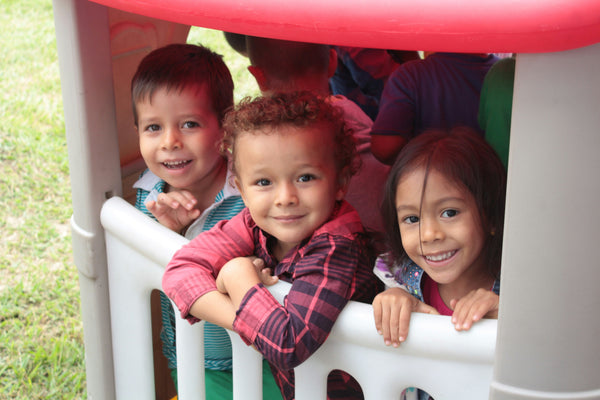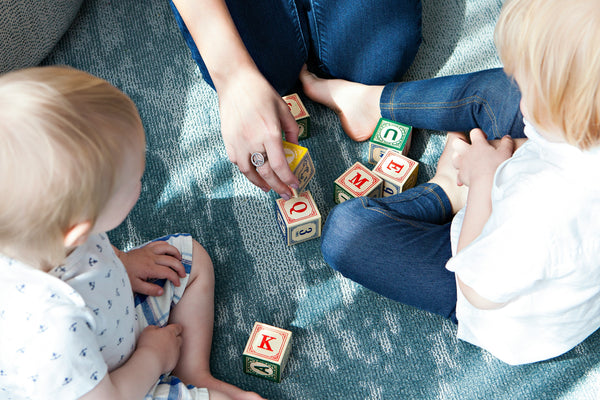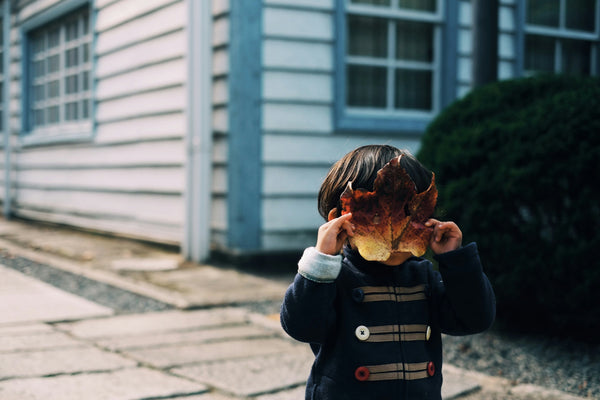How Do You Know If You Have A Healthy Gut?
share this article

A healthy gut microbiome at the forefront of wellness because it is directly linked to digestive, immune, and even brain health [3]. For our kiddos, the first three years of their lives are foundational for building a balanced microbiome and good gut health [4]. How do we know if our kids have a healthy gut? Let’s review some of the ways we can assess a healthy gut and provide additional support for our little ones.
Healthy Gut Bacteria Helps Promote Gut Health
Research shows how the early childhood gut microbiota are strongly related to the transfer of bacteria from mom to baby through breast milk [1]. The findings suggest that the infant's stool contained the same strains of bacteria as mom’s breast milk [1]. Breastfeeding becomes an important topic of discussion related to promoting gut health because many women choose not to or cannot breastfeed their child.
One tool non-breastfeeding moms can use to strengthen their kids’ gut health is to include a prebiotic into their diets. Prebiotics such as Begin Health’s Growing Up Prebiotics contain human milk oligosaccharide (2’-FL Human Milk Oligosaccharide), which helps feed good gut bacteria to support a healthy gut. Contrary to its name Human Milk Oligosaccharide is not from human milk. Human Milk Oligosaccharide is a prebiotic with the same molecular structure as the most abundant prebiotic in human breast milk. Prebiotics can help build a healthy foundation for gut health in your little ones.
Daily reads to help your little ones lead happier and healthier lives.
Join the
Happy Gut Club
What Kid’s Bowel Movements Tell You
One of the best ways to tell how your kids’ digestion is functioning is through what’s inside their diapers or in the toilet. Referring to the Bristol Stool Chart can be a helpful tool in assessing your child’s bowel movements. This tool is a way to assess the shapes, sizes, and textures of bowel movements and to see if it is normal [2]. For example, Types 1 and 7 in the chart below are often signs of poor gut health because they indicate either diarrhea and constipation. Referring to the condition of your kiddos poop may help determine if he or she has a gut imbalance.

Withholding and Gut Health
Another common kid bathroom habit to keep an eye on is withholding. This is when children withhold from passing stool out of fear, pai, or general anxiety associated with a bowel movement. Withholding can have long term effects on your child’s gut microbiome because stool that does not pass can ferment in the digestive tract. This can kill off beneficial bacteria. Once gut health is compromised, it can be an uphill battle to turn around and regain balance.
Solutions for a Healthy Kid’s Gut
First, practice positive parenting and include open communication about poops and stomach aches. This not only teaches your child to listen to their body, but it also builds trust between you and your kiddos.
In addition, a daily prebiotic can support little ones who are struggling with symptoms of constipation. Begin Health Growing Up Prebiotics is a tasteless and textureless daily prebiotic that provides your kiddos with 3 grams of fiber per serving. It’s designed to help with softer stooling and improved friendly gut bacteria in kids [5].
Summary
Your child’s stool has a story to tell. If you notice imbalances there are steps you can take to help course correct any irregularities. Adding a daily kid’s prebiotic supplement like Begin Health Growing Up Prebiotics can support constipation symptoms by helping with softer and more frequent stooling.
















